Fundamento destacado: 29. El Tribunal no considera posible ni necesario intentar una definición exhaustiva del concepto de «vida privada». Sin embargo, sería demasiado restrictivo limitarlo a un «círculo íntimo» en el que cada persona puede vivir su vida personal como desee, excluyendo por completo el mundo exterior que no se encuentra dentro de dicho círculo. El respeto a la vida privada también debe comprender, en cierta medida, el derecho a establecer y desarrollar relaciones con otros seres humanos.
Además, no parece haber ninguna razón de principio para que esta interpretación del concepto de «vida privada» excluya las actividades de carácter profesional o empresarial, ya que, después de todo, es durante la vida laboral cuando la mayoría de las personas tienen una oportunidad significativa, si no la mayor, de desarrollar relaciones con el mundo exterior. Esta opinión se ve respaldada por el hecho de que, como bien señaló la Comisión, no siempre es posible distinguir claramente qué actividades de una persona forman parte de su vida profesional o empresarial y cuáles no. Así, especialmente en el caso de una persona que ejerce una profesión liberal, su trabajo en ese contexto puede formar parte integral de su vida hasta tal punto que resulta imposible saber en qué calidad actúa en un momento dado.
Negar la protección del artículo 8 (art. 8) con el argumento de que la medida impugnada se relacionaba únicamente con actividades profesionales —como sugirió el Gobierno en el presente caso— podría además dar lugar a una desigualdad de trato, ya que dicha protección seguiría estando disponible para una persona cuyas actividades profesionales y no profesionales estuvieran tan entrelazadas que no hubiera forma de distinguirlas. De hecho, el Tribunal no ha establecido hasta ahora tales distinciones: concluyó que había existido una injerencia en la vida privada incluso cuando las escuchas telefónicas abarcaban tanto las llamadas profesionales como las privadas (véase la sentencia Huvig c. Francia de 24 de abril de 1990, Serie A núm. 176-B, pág. 41, párr. 8, y pág. 52, párr. 25). y, cuando una búsqueda se dirigía únicamente a actividades comerciales, no se basó en ese hecho como fundamento para excluir la aplicabilidad del artículo 8 (art. 8) en el ámbito de la «vida privada» (véase la sentencia Chappell contra el Reino Unido de 30 de marzo de 1989, Serie A nº 152-A, págs. 12-13, párr. 26, y págs. 21-22, párr. 51).
COURT (CHAMBER)
CASE OF NIEMIETZ v. GERMANY
(Application no. 13710/88)
JUDGMENT
STRASBOURG
16 December 1992
In the case of Niemietz v. Germany,
The European Court of Human Rights, sitting, in accordance with Article 43 (art. 43) of the Convention for the Protection of Human Rights and Fundamental Freedoms («the Convention») and the relevant provisions of the Rules of Court, as a Chamber composed of the following judges:
Mr R. Ryssdal, President,
Mr R. Bernhardt,
Mr L.-E. Pettiti,
Mr B. Walsh,
Mr C. Russo,
Mr A. Spielmann,
Mr N. Valticos,
Mr A.N. Loizou,
Sir John Freeland,
and also of Mr M.-A. Eissen, Registrar, and Mr H. Petzold, Deputy Registrar,
Having deliberated in private on 29 May and 23 November 1992,
Delivers the following judgment, which was adopted on the last-mentioned date:
PROCEDURE
1. The case was referred to the Court by the European Commission of Human Rights («the Commission») on 12 July 1991, within the three-month period laid down by Article 32 para. 1 and Article 47 (art. 32-1, art. 47) of the Convention. It originated in an application (no. 13710/88) against the Federal Republic of Germany lodged with the Commission under Article 25 (art. 25) on 15 February 1988 by a German citizen, Mr Gottfried Niemietz, who is a lawyer.
The Commission’s request referred to Articles 44 and 48 (art. 44, art. 48) and to the declaration whereby Germany recognised the compulsory jurisdiction of the Court (Article 46) (art. 46). The object of the request was to obtain a decision as to whether the facts of the case disclosed a breach by the respondent State of its obligations under Article 8 (art. 8) of the Convention.
2. In response to the enquiry made in accordance with Rule 33 para. 3 (d) of the Rules of Court, the applicant stated that he wished to take part in the proceedings and sought leave, which was granted by the President of the Court, to present his own case (Rule 30) and to use the German language (Rule 27 para. 3).
3. The Chamber to be constituted included ex officio Mr R. Bernhardt, the elected judge of German nationality (Article 43 of the Convention) (art. 43), and Mr R. Ryssdal, the President of the Court (Rule 21 para. 3 (b)). On 29 August 1991 the President drew by lot, in the presence of the Registrar, the names of the other seven members, namely Mr J. Cremona, Mr L.-E. Pettiti, Mr C. Russo, Mr A. Spielmann, Mr N. Valticos, Mr A.N. Loizou and Sir John Freeland (Article 43 in fine of the Convention and Rule 21 para. 4) (art. 43). Subsequently, Mr B. Walsh, substitute judge, replaced Mr Cremona, whose term of office had expired and whose successor at the Court had taken up his duties before the hearing (Rules 2 para. 3 and 22 para. 1).
[Continúa…]
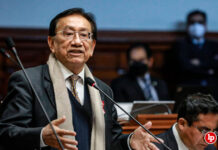

![Dos momentos para requerir la incoación del proceso inmediato: (i) luego de culminar las diligencias preliminares —para ello el requerimiento debe incorporar los mismos elementos de una formalización— y (ii) antes de los 30 días de formalizada la investigación preparatoria [AP 6-2010/CJ-116, f. j. 15]](https://img.lpderecho.pe/wp-content/uploads/2025/10/MAZO-JUEZ-SENTENCIA-PENAL-LPDERECHO-218x150.jpg)
![La apelación del auto que resuelve el requerimiento de proceso inmediato no tiene efecto suspensivo, pues no pone fin al procedimiento penal (doctrina legal) [APE 2-2016/CIJ-116, f. j. 24]](https://img.lpderecho.pe/wp-content/uploads/2025/07/MAZO-TRIBUNAL-LPDERECHO-218x150.jpg)
![El proceso de amparo contra resoluciones judiciales no es la vía para ejercer el derecho de crítica de las decisiones judiciales sin que exista de por medio una vulneración iusfundamental [Exp. 04404-2023-PA/TC, f. j. 5]](https://img.lpderecho.pe/wp-content/uploads/2025/09/AMPARO-RESOLUCIONES-CRITICA-LPDERECHO-218x150.jpg)
![Precedente del Tribunal Registral sobre la extinción del derecho de enfiteusis [Res. 0038-2026-Sunarp/PT]](https://img.lpderecho.pe/wp-content/uploads/2024/03/tribunal-registral-LPDerecho-218x150.jpg)

![Ley Orgánica del Registro Nacional de Identificación y Estado Civil (Ley 26497) [actualizada 2025]](https://img.lpderecho.pe/wp-content/uploads/2025/05/Ley-organica-del-registro-nacional-de-identificacion-y-estado-civil1-LPDERECHO-218x150.jpg)




![[VÍDEO] Aplica el «ne bis in idem» en San Valentin: nadie puede ser celado dos veces por el mismo hecho](https://img.lpderecho.pe/wp-content/uploads/2023/02/aplica-principio-ne-bis-in-idem-san-valentin-LPDERECHO-218x150.png)





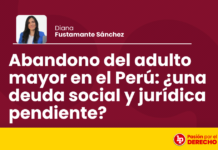

![La sanción del art. 203 del CPC (concluir el proceso sin pronunciamiento sobre el fondo) opera ante la inasistencia de ambas partes a la audiencia de pruebas; sanción que no se aplica si las partes acudieron a las primeras sesiones de la audiencia, aunque posteriormente esta se reprograme por ausencia de las partes [Casación 5538-2019, Lima, ff. jj. 13-18] Poder Judicial](https://img.lpderecho.pe/wp-content/uploads/2021/11/Poder-judicial-palacio-de-justicia-ultimo-minuto-1-LPDerecho-218x150.png)

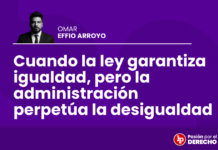


![Es válido que empresa azucarera despida a trabajador luego de encontrar ½ kg de azúcar en su mochila cuando este salía del trabajo; no se necesita probar quién era el propietario del bien incautado [Cas. Lab. 4600-2023, La Libertad, ff. jj. 7 y 8]](https://img.lpderecho.pe/wp-content/uploads/2024/04/banner-despido-vacaciones-desacanso-horas-libres-feriado-trabajador-formal-LPDerecho-218x150.jpg)
![Reglamento Normativo del Tribunal Constitucional [actualizado 2025]](https://img.lpderecho.pe/wp-content/uploads/2021/12/Reglamento-normativo-del-TC-legislacion-LPDerecho-218x150.png)
![La finalidad de los procesos constitucionales de la libertad es otorgar protección a los derechos constitucionales, de naturaleza individual o colectiva, y reponer las cosas al momento anterior al de la vulneración o amenaza de vulneración a los mismos, además de disponer el cumplimiento de un mandato legal o de un acto administrativo [Exp. 02250-2023-PHC/TC, f. j. 3]](https://img.lpderecho.pe/wp-content/uploads/2023/01/Logo-LP-con-fondo-guinda-LPDERECHO-218x150.png)
![TC se vuelve a apartar de la STC Exp. 00413-2021-PHC/TC: Si se considera que la pena mínima del robo agravado es exhorbitante, es el legislador y no el TC el competente para determinar el quantum de la pena abstracta [Exp. 00215-2024-PHC/TC, f. j. 9]](https://img.lpderecho.pe/wp-content/uploads/2023/03/tribunal-constitucional-fachada-exterior-tc-LPDerecho-218x150.png)
![Modifican Reglamento Normativo del Tribunal Constitucional [RA 019-2026-P/TC] Congruencia recursal](https://img.lpderecho.pe/wp-content/uploads/2024/03/tribunal-constitucional-3-LPDerecho-218x150.jpg)


![[VÍDEO] CAL: Candidatos al cargo de decano plantean sus propuestas. ¿Por quién votarás?](https://img.lpderecho.pe/wp-content/uploads/2024/03/banner-Colegio-de-Abogados-de-Lima-CAL-fachada-LPDerecho-218x150.jpg)
![Ley de Delitos Informáticos (Ley 30096) [actualizada]](https://img.lpderecho.pe/wp-content/uploads/2024/08/ley-de-delitos-informaticos-ley-30096-actualizada-LPDERECHO-218x150.jpg)
![Código Penal peruano [actualizado 2026]](https://img.lpderecho.pe/wp-content/uploads/2024/05/VENTA-CODIGO-PENAL-LPDERECHO-218x150.jpg)
![Código Procesal Penal peruano [actualizado 2026]](https://img.lpderecho.pe/wp-content/uploads/2024/02/VENTA-CODIGO-PENAL-BANNER-POST-TAPA-DURA-LPDERECHO-218x150.jpg)
![TUO del Reglamento General de los Registros Públicos (Resolución 126-2012-Sunarp-SN) [actualizado 2026]](https://img.lpderecho.pe/wp-content/uploads/2026/02/TUO-del-Reglamento-general-registros-publicos-LPDerecho-218x150.png)









![[VÍDEO] ¿Quieres postular a la Fiscalía? Estas son las preguntas que hacen en las entrevistas](https://img.lpderecho.pe/wp-content/uploads/2021/10/postular-fiscalia-preguntas-entrevista-LP-218x150.jpg)
![EXP. N.° 0022-2009-PI/TC LIMA GONZALO TUANAMA TUANAMA Y MÁS DE 5000 CIUDADANOS SENTENCIA DEL TRIBUNAL CONSTITUCIONAL En Lima, a los 09 días del mes de junio de 2010, el Tribunal Constitucional en sesión de Pleno Jurisdiccional, con la asistencia de los magistrados Mesía Ramírez, Beaumont Callirgos, Vergara Gotelli, Landa Arroyo, Calle Hayen, Eto Cruz y Álvarez Miranda, pronuncia la siguiente sentencia con los fundamentos de voto de los magistrados Vergara Gotelli y Landa Arroyo, que se agregan. ASUNTO Demanda de Inconstitucionalidad interpuesta por Gonzalo Tuanama Tuanama, en representación de más de 5000 ciudadanos contra el Decreto Legislativo N.° 1089. DEMANDA Y CONTESTACIÓN a) Demanda contra el Decreto Legislativo N.° 1089, que regula el Régimen Temporal Extraordinario de Formalización y Titulación de Predios Rurales Con fecha 01 de julio de 2009, se interpone demanda de inconstitucionalidad contra el Decreto Legislativo N.° 1089, que regula el Régimen Temporal Extraordinario de Formalización y Titulación de Predios Rurales, publicada en el diario oficial El Peruano el 28 de junio de 2008. Los demandantes refieren que “'sin entrar al fondo del contenido de la norma”, ésta fue promulgada sin efectuar ninguna consulta previa e informada a los pueblos indígenas, tal como lo ordena el Convenio 169 de la Organización Internacional De Trabajo (OIT), afectándose con ello los derechos fundamentales de los pueblos Indígenas, como el derecho a la consulta previa y el derecho colectivo al territorio ancestral, establecidos en los artículos 6, 15, 17 del mencionado convenio. De igual forma, expresan que no se tomaron en cuenta los artículos 19, 30 y 32 de la Declaración de las Naciones Unidas sobre los Derechos de los Pueblos Indígenas (DNUDPI) aprobado por la Asamblea General de la Organización de Naciones Unidas. Alegan que con dicha norma se afectan otros derechos establecidos en el Convenio N.° 169, como el derecho sobre las tierras de los pueblos indígenas (artículos 13 al 19), en el considerando que no se tomaron en cuenta medida que garanticen la protección de sus derechos de propiedad y posesión. Refieren que se afecta también el derecho a la libre determinación de las comunidades nativas, previsto en el artículo 17 del Convenio, que declara el respeto de sus formas tradicionales de transmisión de sus territorios. Por último, alegan que se estaría vulnerando lo previsto en el artículo 19 del Convenio en cuanto se afecta el derecho al desarrollo de políticas agrarias adecuadas para los pueblos indígenas. [Continúa...] Descargue la resolución aquí](https://img.lpderecho.pe/wp-content/uploads/2023/01/Logo-LP-con-fondo-guinda-LPDERECHO-1068x561.png)
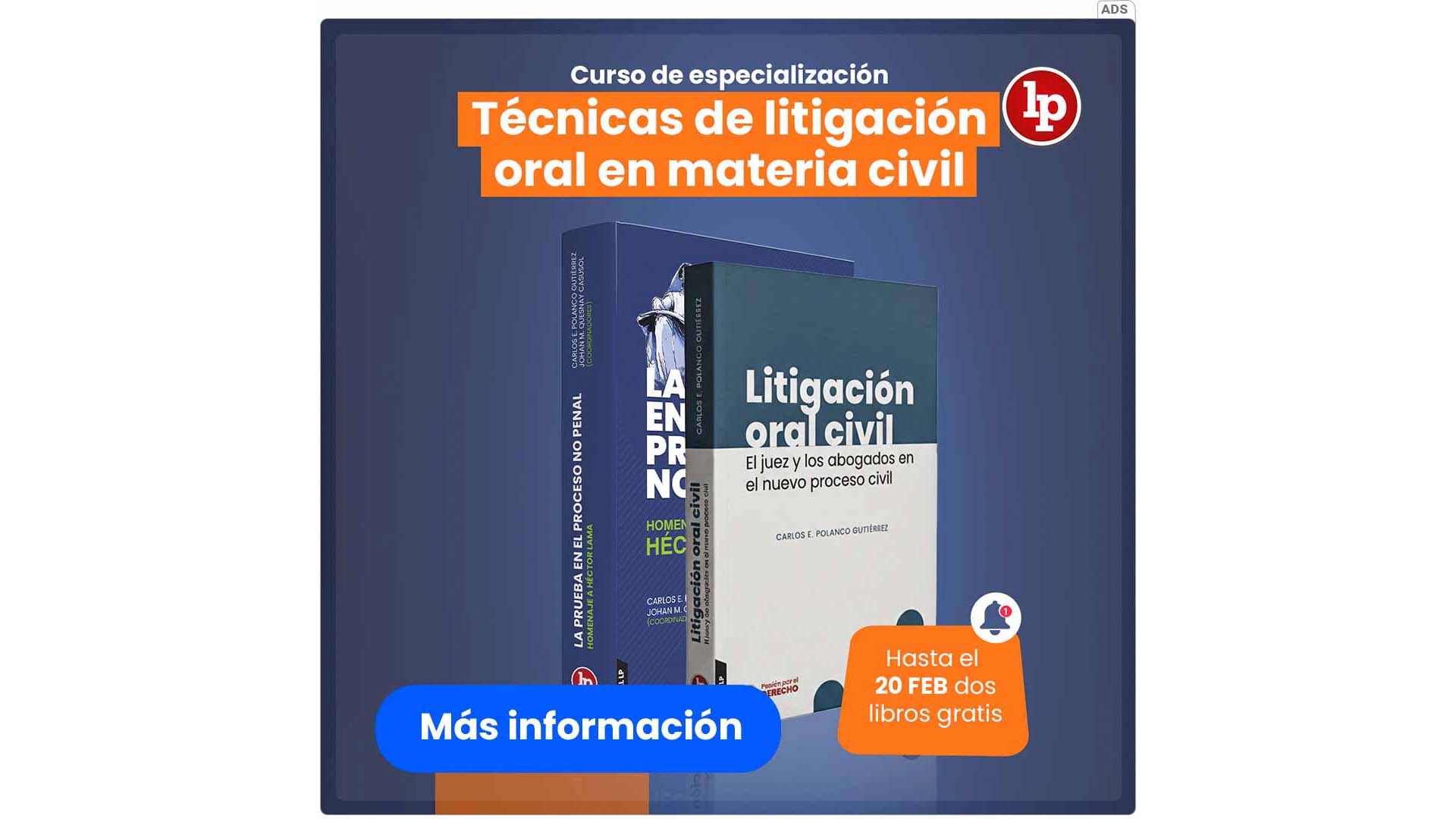

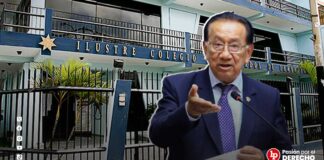
![Código Penal peruano [actualizado 2026]](https://img.lpderecho.pe/wp-content/uploads/2024/05/VENTA-CODIGO-PENAL-LPDERECHO-100x70.jpg)

![Corte IDH condena al Perú por demora injustificada e innecesaria en la ejecución de decisiones judiciales en agravio de un jubilado [caso Cuadra Bravo vs. Perú]](https://img.lpderecho.pe/wp-content/uploads/2025/05/Corte-IDH-fachada-LPDerecho-100x70.jpg)
![Código Procesal Penal peruano [actualizado 2026]](https://img.lpderecho.pe/wp-content/uploads/2024/02/VENTA-CODIGO-PENAL-BANNER-POST-TAPA-DURA-LPDERECHO-100x70.jpg)
![Reglamento Normativo del Tribunal Constitucional [actualizado 2025]](https://img.lpderecho.pe/wp-content/uploads/2021/12/Reglamento-normativo-del-TC-legislacion-LPDerecho-324x160.png)
![Modifican Reglamento Normativo del Tribunal Constitucional [RA 019-2026-P/TC] Congruencia recursal](https://img.lpderecho.pe/wp-content/uploads/2024/03/tribunal-constitucional-3-LPDerecho-100x70.jpg)




![Reglamento Normativo del Tribunal Constitucional [actualizado 2025]](https://img.lpderecho.pe/wp-content/uploads/2021/12/Reglamento-normativo-del-TC-legislacion-LPDerecho-100x70.png)




![La declaración de invalidez de una norma con rango de ley que implementa una política pública solamente será posible cuando contravenga manifiestamente la promoción del objetivo colectivo señalado por la Constitución (caso TLC Perú-China) [Exp. 00021-2010-AI/TC, f. j. 71]](https://img.lpderecho.pe/wp-content/uploads/2024/03/tribunal-constitucional-LPDerecho-324x160.jpg)